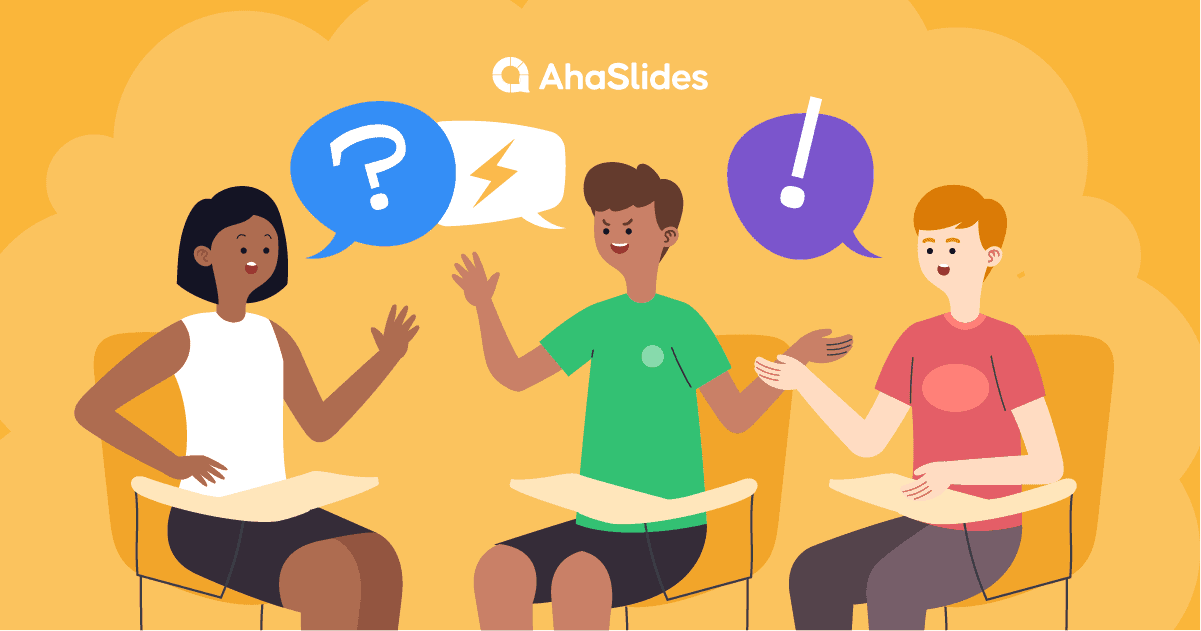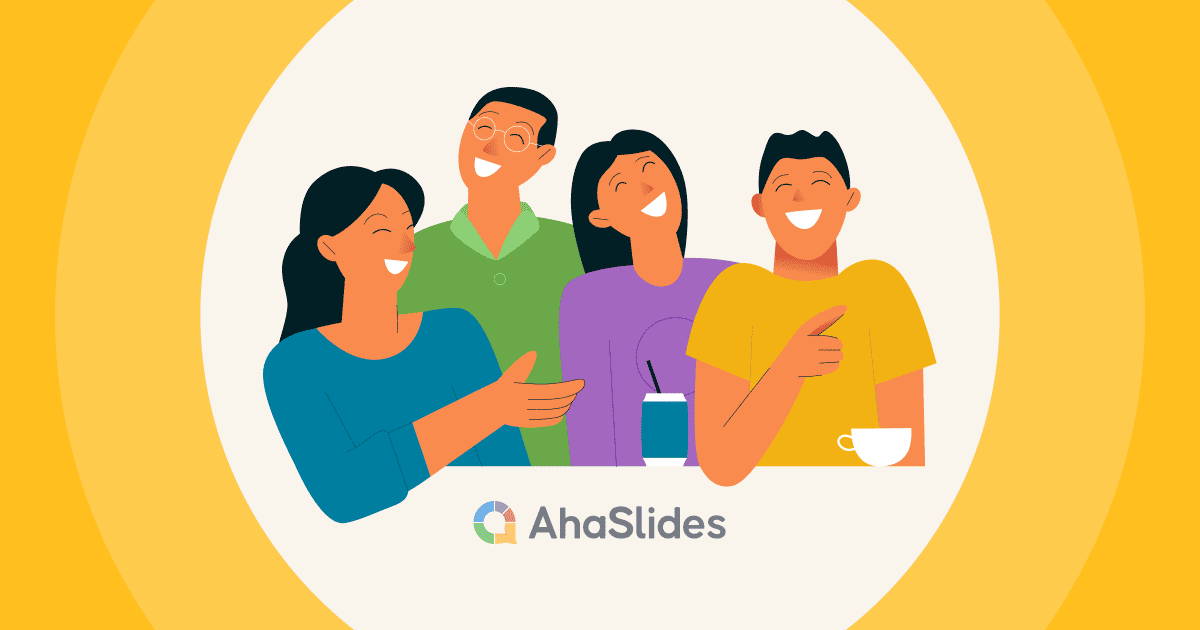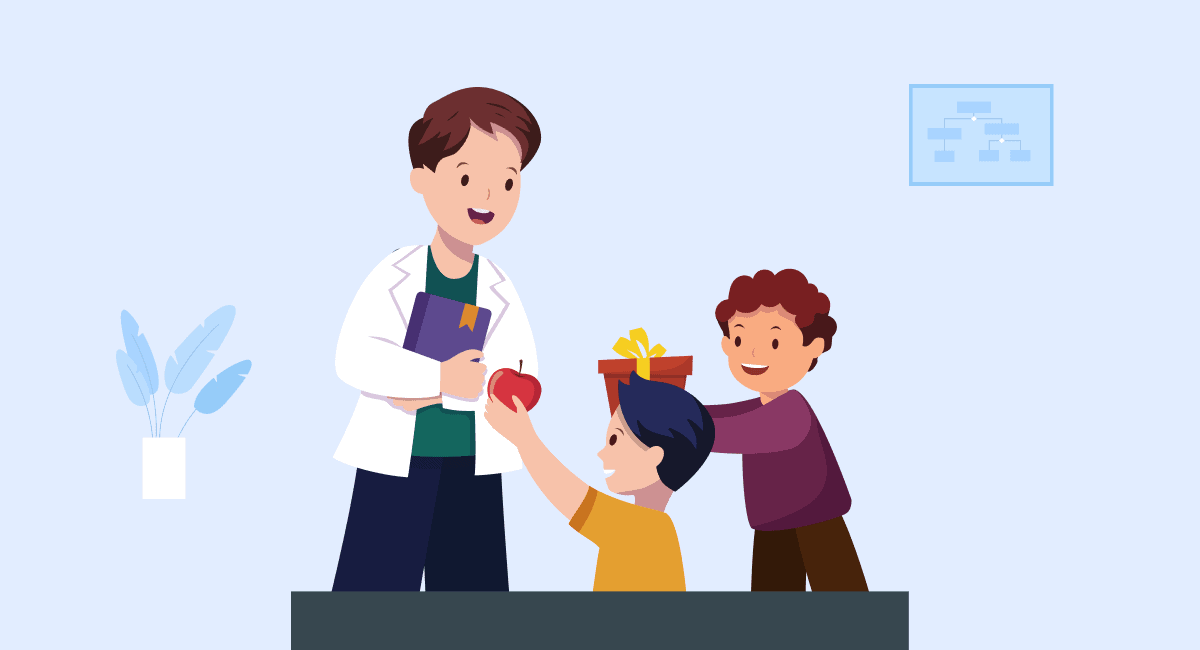Mesebetsi ea likhang ha se monate oa lipompong oa baithuti. Li tšoana le licorice tse ntšo, tse sa latsoeheng, tse tenang le tse thata ho li hlafuna (tseo li batlang ho li qoba ka litšenyehelo tsohle), 'me hangata ka har'a phehisano, u ka utloa lerata la li-cricket ho e-na le ho khutlela morao-le-pele tseo esale u li lora.
Ha ho bonolo ho senya mekhoa ha u hlophisa liketsahalo tsa lipuisano, empa ka tsena tse 13 li sebelisana haholo lipapali tsa lipuisano tsa inthaneteng (e boetse e sebetsa hantle ntle le marang-rang), matichere a ka thusa ho hlaolela tikoloho e monate le e hohelang ea ho ithuta ha ba ntse ba ruta baithuti tsebo ea ho susumetsa.
Sheba mokhoa oa ho ngangisana inthaneteng joalo ka tlase!
Tafole ea likateng
- Overview
- #1 - Lintoa tsa Khang
- #2 - Republia Times
- #3 - Ho phehisana khang
- #4 - Mabaka a mahlano a matle
- #5 - Mohlala oa Machaba a Kopaneng
- #6 - U eme hokae?
- #7 - Sehlekehleke sa lehoatata
- #8 - Tloaelo
- #9 - Ea 'nete kapa ea fake
- #10 - Letata la Letata
- #11 - Werewolf
- #12 - Zombie Apocalypse
- #13 - 'Muelli oa Diabolose
- 30 Lihlooho Tse Ntle Tsa Phehisano
- Lipotso Asked hangata
Overview
| Papali ea ngangisano ke efe? | Papali ea ngangisano ke papali e hlokang bonyane lihlopha tse 2 tse hanyetsanang ho ngangisana, se seng le se seng se lebe ka tsela e fapaneng ka sehlooho. |
| Papali ea lipuisano ke ea mang? | Emong le emong ya ratang ho ngangisana. |
| Molemo o moholo oa lipuisano tsa Marang-rang ke ofe? | Joalo ka ha motho e mong le e mong a ka nka karolo, ho na le maikutlo a fapaneng. |
Malebela a mang ka AhaSlides
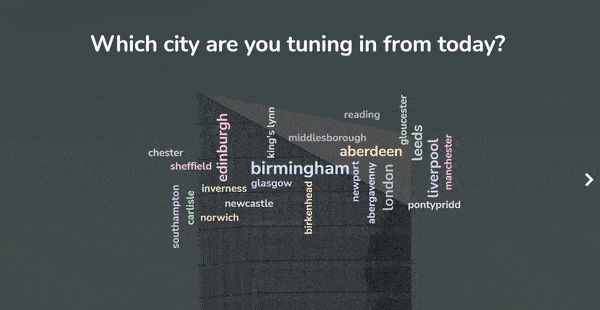
Qala ka metsotsoana.
Fumana litempele tsa mahala tsa lipuisano tsa baithuti. Ingolise mahala 'me u nke seo u se batlang laebraring ea template!
🚀 Fumana Lithempleite tsa Mahala ☁️
Mokhoa oa ho ba le Phehisano e Atlehang Inthaneteng
Mokhoa oa ho tšoara ngangisano ea baithuti e sa omeletseng joalo ka lerōle, e hohela esita le motho ea nang le maikutlo a fokolang, 'me e tsamaea habonolo - ke potso eo matichere a mangata a e nahanang. Kahoo ikopanye hobane re na le maqheka a 'maloa a lekunutu bakeng sa lipuisano tsa hau tsa phaposi:
- Ipehele pakane e tiileng. Sepheo sa ngangisano ea phaposi ke ho hatela pele hammoho le ho hlahloba mehopolo e fapaneng. Etsa bonnete ba hore u ngola sepheo sa hau letlapeng le lesoeu e le hore bohle ba ka hopola.
- E-ba le potoloho e nyane ea papali ea ho pshatla leqhoa. Ke habohlokoa hore liithuti li ikutloe li phutholohile ha li e-na le lithaka tsa tsona ho bula monyetla oa puisano.
- Ka linako tse ling, ho se tsejoe ke seo u se hlokang ho tsamaisa lipuisano tse thellang. Lumella liithuti hore li fane ka maikutlo a bona ba sa tsejoe, e le hore ba se ke ba tšaba ho ahloloa ke liithuti-'moho le bona.
- Theha letoto la melao ea motheo:
+ Hopotsa liithuti tsa hao hore e mong le e mong o ka botong e le ’ngoe, ’me ha ho se nepahetseng kapa se fosahetseng, leha e le tšoaro e khethehileng.
+ Ha ho litlhaselo tsa motho kapa ho etsa lintho tsa botho.
+ Likhang tse thehiloeng bopaking boo e seng ’nete li tla hlakoloa.
+ Itokisetse ho mamela le ho hlompha pono e ’ngoe le e ’ngoe, ’me u lumele ha u hlokomela hore u fositse.
- Eba le lipapali tse monate phahamisa matsoho. Ho fetola likhang tse chesang hore e be lipapali tse bobebe le tse monate ke tsela e molemohali ea ho netefatsa hore baithuti ba tla phela bophelo bohle ba bona le ho boloka lipuisano li ntse li tsamaea hantle le ka thelelo.
Lipapali tse 13 tse Hlollang Tsa Khang Inthaneteng bakeng sa Liithuti
#1 - Lintoa tsa Khang
Na "ho ba 'muelli oa molao" o kile oa ba lethathamong la libakete tsa hau? Hobane Lintoa Tsa Khang e mabapi le ho sireletsa le ho fetoha letsoho le letona la toka. Papali ena e sebelisa mokhoa oa papali ea likarete ho tsebisa baithuti mabaka a amanang le molaotheo oa linyeoe tse ling tsa bohlokoa tsa nalane ea Lekhotla le Phahameng la US. Baithuti ba ka khetha lehlakore la nyeoe e 'ngoe le e 'ngoe 'me ba tla tlameha ho arola karolo ka 'ngoe ea bopaki ho theha phehisano e lumellanang le ho hapa pelo ea moahloli.
Ho na le maemo a robong a lokelang ho hlahlojoa, kahoo matichere a ka arola sehlopha ka lihlopha tse robong tse fapaneng. E mong le e mong o tla khetha nyeoe e le 'ngoe e itseng ebe o etsa ketsahalo hammoho.
Lebaka leo re e ratang:
- Mokhoa oa papali o bonolo ebile o motle bakeng sa ho nts'etsapele kutloisiso ea mantlha ea linyeoe le likhang.
- Argument Wars e sebetsa ho li-platform tse ngata: webosaete, iOS le Android.
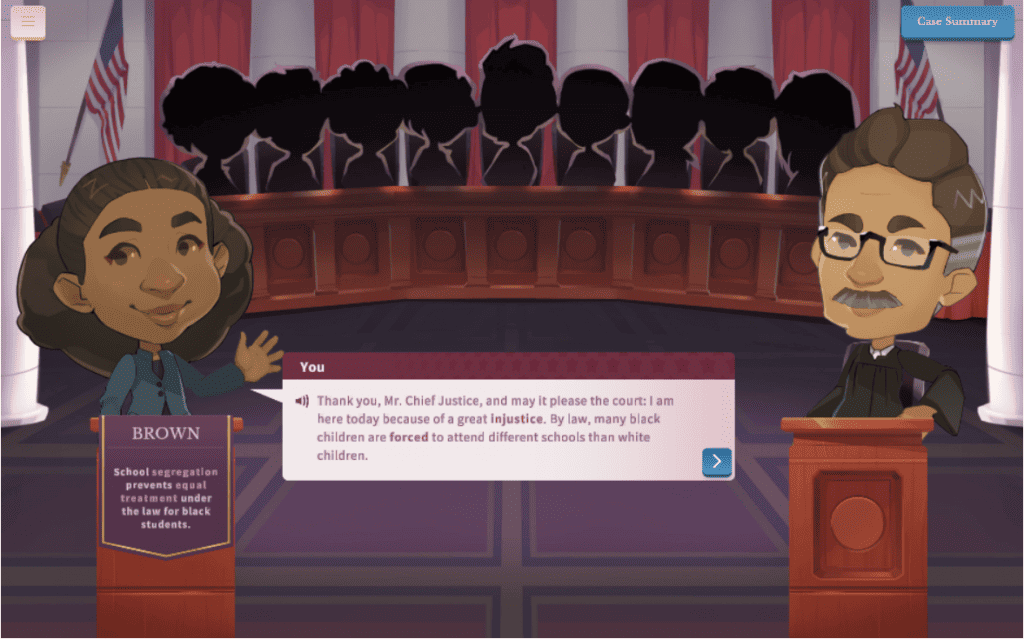
#2 - Republia Times
Republia Times ke papali ea mahala ea marang-rang e etsahalang ho dystopia ea tšōmo. Baithuti ba bapala karolo ea mohlophisi ea lokelang ho leka-lekanya pakeng tsa ho phatlalatsa lipale tse tšehetsang 'muso le ho fana ka lipale tsa lesebo tse monate ho eketsa palo ea batho ba balang.
Ha e hatise ntlha ea ngangisano haholo, empa e bonts'a baithuti tsebo ea ho susumetsa le sebopeho sa lipolotiki sa sistimi ka 'ngoe. Lumella liithuti tsa hau ho bapala ka lebelo la tsona, kapa li bapale ka tlelaseng ho phelisa puisano.
Lebaka leo re e ratang:
– Ha e lefelloe ka ho feletseng ’me e eketsa linoko tse ling nakong ea khefu ea metsotso e 10 ea tlelase.
- Baithuti ba ka ithuta ka mathata a kang censorship le ho sebelisa menahano ea bona e tebileng ho lekola likhetho tsa bona ho hlahisa tharollo e molemohali.
#3 - Ho phehisana khang
Ho fetile motsotso mme ha ho motho ya buileng letho. Mme ehlile ha se mahlale a rokete ho fumana hore na o bolela feela potso mme o lebelletse hore ho be le moqoqo o tukang ka tlelaseng, hangata o qetella ka khutso e makatsang. Linakong tsena o ka senya potoloho ka likarolo tse ling tsa tlholisano ho Ho phehisana khang?
Papaling ena, u tla arola sehlopha ka lihlopha tse nyane, 'me u fane ka potso ea lipuisano ho sebetsa ho eona. Sehlopha se seng le se seng se tla tlameha ho ngola maikutlo a sona le ho lokafatsa maikutlo ao nakong ea metsotsoana e 60. Ke sehlopha sefe se ka kholisang bamameli le ho fumana likhetho tse ngata e tla ba bahloli.
Bakeng sa ts'ebetso ena, o ka sebelisa AhaSlides 'interactive Slide ea maikutlo ho bokella maikutlo a sehlopha sa litlokotsebe ka ho panya ha leihlo le ho lumella baithuti ho voutela sehlopha se hloahloa.
Tšebelisano-'moho e etsa mosebetsi oa litoro
E-re liithuti li fane ka maikutlo a tsona ka lihlopha 'me li qothisane lehlokoa ho hapa lipelo tsa bamameli ka karolo ena ea bohlokoa ea pokothong, 100% e loketse ho sebelisoa🎉
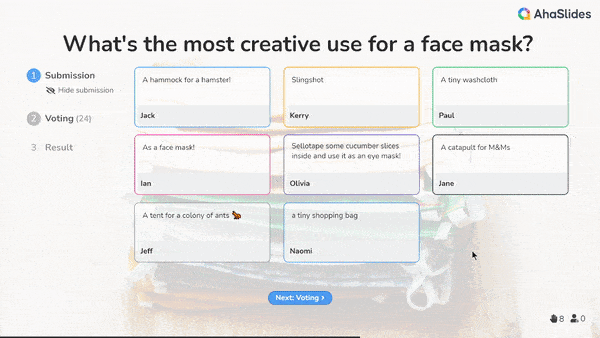
#4 - Mabaka a mahlano a matle
Tsela ea ho arabela ka khutso tlas'a khatello? Ho Mabaka a mahlano a matle, u tla fana ka lethathamo la litlhahiso tse kang "Mphe mabaka a mahlano a utloahalang a hore na ke hobane'ng ha liithuti li lokela ho apara junifomo" kapa "Mphe mabaka a mahlano a utloahalang a hore na ke hobane'ng ha batho ba rata li-pandas tse khubelu". Baithuti le bona ba tla tlameha ho fana ka maikutlo a maikutlo a mahlano ka metsotso e 2.
Lebaka leo re e ratang:
- Sepheo ha se ho tla le likarabo tse nepahetseng ka ho fetisisa empa ho lumella liithuti hore li itloaetse ho phalla boemong bo sithabetsang.
- Papali e fetoloa habonolo maemong a fapaneng joalo ka papali ea ngangisano ea ESL, papali ea lipuisano bakeng sa batho ba baholo le tse ling tse ngata.
#5 - Mohlala oa Machaba a Kopaneng
Re utloile ka Machaba a Kopaneng hohle, empa na re tseba hantle mesebetsi ea oona? Model United Nations (MUN) ke papiso ea thuto eo ho eona baithuti ba bapalang karolo e le baemeli ba tsoang lefats'eng lohle, ba bokaneng ho rarolla bothata bo sa feleng ba lefats'e joalo ka phetoho ea maemo a leholimo, paballo ea liphoofolo tse hlaha, litokelo tsa botho, jj.
Ba tla tlameha ho itokisetsa, ho hlahisa liqeto tsa bona tse sisintsoeng, le ho phehisana khang le baemeli ba bang hore ba fumane bongata ba likhetho.
Leha ho le joalo, u se ke ua lumella litaba tseo tse boima hore li u sitise ho hlahisa phihlelo e monate, e hohelang. U ka ba tlohella hore ba buisane ka taba e sa reng letho joalo ka na re lokela ho ba le letsatsi la machaba la ho ts'oarana ka matsoho ka lekunutu?, or na re lokela ho nehelana ka tekanyetso ea rona ea lipatlisiso ho nts'etsapele li-unicorn?
Lebaka leo re e ratang:
- MUN ke monyetla o motle oa ho lumella baithuti ho fumana kutloisiso e tebileng ea litaba tsa hajoale tsa lefats'e.
- Baithuti ba hau ba qala ho bapala karolo ea batho ba bohlokoa ba buisanang ka lihlooho tsa bohlokoa.
#6 - U eme hokae?
Papaling ena e bonolo ea ngangisano ea inthanete, u tla arola mahlakore a ngangisano ka maikutlo a mabeli: ka matla lumela 'me ha e lumellane ka matla. Joale u etsa polelo, 'me liithuti li tla tlameha ho ema pakeng tsa mahlakore a mabeli. Ba kopanye le moithuti e mong ea nang le maikutlo a hanyetsanang 'me u ba kope ho lokafatsa khetho ea bona ho e mong.
Lebaka leo re e ratang:
- Papali e sutumelletsa liithuti ho theha maikutlo a bona a bohlokoa le ho nahana ka lebaka la eona, ho e-na le ho ba sebakeng sa "grey".
#7 - Sehlekehleke sa lehoatata
Ha ho nahanoa ka boemo ba hore baithuti bohle ba qabeletsoe sehlekehlekeng se se nang batho, ke lintho life tse tharo tseo ba neng ba tla tla ka tsona, hona hobane'ng? Ketsahalong ena, lumella baithuti ho fana ka likhetho tsa bona le mabaka a bona ebe ba voutela lipolelo tse utloahalang haholo. Ena ke papali e ntle haholo, e bonolo bakeng sa lihlopha ho bapala hammoho le ho arolelana maikutlo a tsona.
Lebaka leo re e ratang:
- U ka tseba litšobotsi tse ikhethang tsa baithuti ba hau ka khetho ea bona.
- Papali e holisa bokhoni ba baithuti ba ho hlahisa litharollo tsa boiqapelo maemong a ikhethileng.
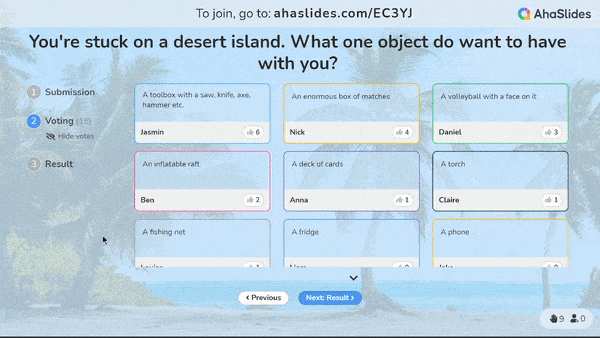
#8 - Tloaelo
E le molaoli oa kolone, Quandary e lumella liithuti ho nka karolo ea motho ea ka sehloohong: ho rarolla liqabang, ho rarolla mathata bakeng sa baahi le ho theha bokamoso ba tsoelopele e ncha polaneteng e fapaneng.
U ka lumella liithuti tsa hau ho bapala li le bang kapa li le babeli, 'me u tsamaise lipuisano tsa sehlopha ka mor'a hore ba qete papali. Ba botse lipotso tse fatang maikutlo tse kang “hobaneng u khethile tharollo eo u e entseng?”, kapa “ke eng e ka beng e entsoe hamolemo bakeng sa kolone?”.
Lebaka leo re e ratang:
- Setaele se khahlehang sa bonono ba metlae.
– Ha ho se nepahetseng kapa se fosahetseng. Baithuti ba na le taolo e felletseng ea ho etsa liqeto koloneng ea bona.
- Lisebelisoa tse tšehetsang joalo ka tataiso ea papali le foramo ea thuso li fumaneha webosaeteng ea Quandary.
#9 - Ea 'nete kapa ea fake
Ho thusa baithuti ho hlaolela bokhoni ba ho tseba litaba tsa leshano ke toro eo mosuoe e mong le e mong a nang le eona, 'me papali ena e tla ba ruta ho se lumele ho tsohle. O ka hlophisa ketsahalo ka mehato ena e bonolo:
- Hata 1: Hatisa setšoantšo sa ntho, mohlala, ntja.
- Hata 2: E khaole likotoana tse nyane. Etsa bonnete ba hore ka sengoathoana ka seng, ha ho motho ea ka tsebang hore na ke eng.
- Hata 3: Arola sehlopha ka lihlopha tsa batho ba 3. E mong e tla ba moahloli/mohakanyetsi, e mong e tla ba mophehisano oa “’nete” ’me e mong e be mophehisano oa “leshano”.
- Hata 4: Bolella batho ba babeli ba phehisanang khang hore na setšoantšo se felletseng ke eng, ebe u ba fa sekotoana sa setšoantšo seo u se lokisitseng. Motho ea phehisanang khang ka "'nete" o tla tlameha ho etsa lipolelo tse nepahetseng ho motho ea nahanang hore a ka hakanya ntho e nepahetseng, ha mohanyetsi oa "leshano" a tla leka ho bolela hore ke ntho e fapaneng.
Lebaka leo re e ratang:
- Liithuti li ka sebelisa tsebo ea ho susumetsa le mokhoa oa ho ahlola bopaki ho latela boitsebiso boo ba bo bokeletseng.
#10 - Letata la Letata
Letata Goose Goose ke papali ea ho theola batho sechabeng moo u ka bapalang joaloka likhantsi tse hlokang kelello. U tla tlameha ho sebetsa le likhantsi-'moho le uena ho phethela thomo 'me ho bohlokoa ka ho fetisisa, u leleke letata le ikopantseng ka har'a pakete ka sepheo se kotsi. Baithuti ba hau ba tla tlameha ho fetana le ho paka ho hloka molato hore e be ba ho qetela ba emeng.
Ntle le mollo o tukang le ho lelekisa, uena le baithuti ba hau le ka hlahloba limmapa tse fapaneng le ho etsa mesebetsi ea mahlakore hammoho. Goose Goose Duck ha e na sebaka sa ho jeoa ke bolutu kahoo qala ho e khoasolla ka komporo kapa mohala, theha kamore 'me u meme motho e mong le e mong ho bapala hanghang.
Lebaka leo re e ratang:
- E fumaneha ho PC le lisebelisoa tsa mohala, 'me e lokolohile ka botlalo.
- Meralo ea libapali tse qabolang tseo u li ratang hanghang, 'me le tsona u ka li etsa.
- Mofuta o bonolo oa PG oa papali e tummeng hampe ea Marang-rang Har'a Rōna.
- Baithuti ba hau ba ithuta ho beha mabaka le ho hanyetsa nakong ea ngangisano.
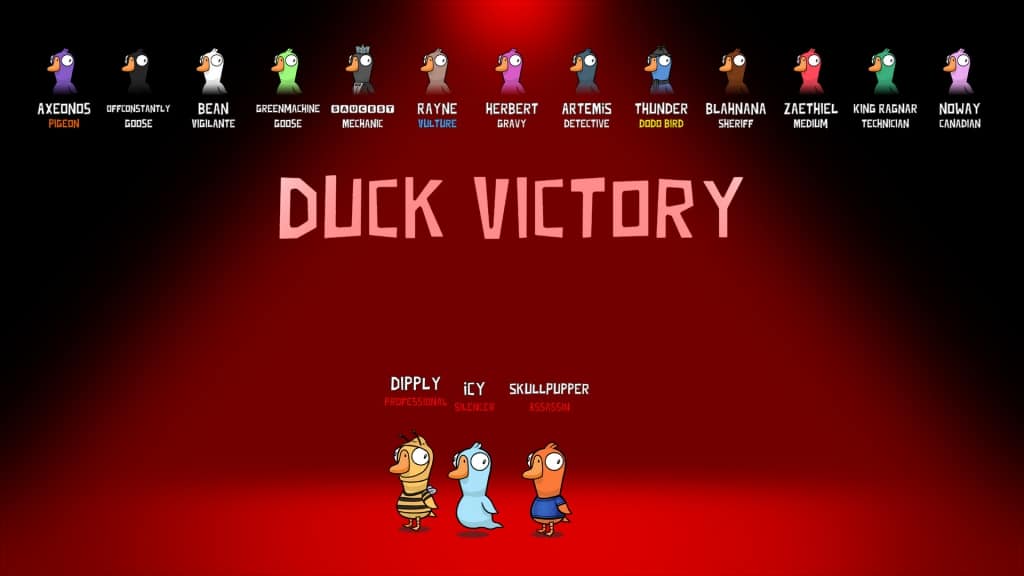
#11 - Werewolf
Bosiu bo lefifi 'me bo tletse tšabo. A na u ka bolaea liphiri har'a baahi ba motse, kapa u tla fetoha phiri e tsomang ka sekhukhu bosiu bo bong le bo bong? Werewolf ke papali e 'ngoe ea phokotso sechabeng eo ho eona libapali li tla tlameha ho sebelisa bokhoni ba tsona ba ho susumetsa ho hapa papali.
Papali ena e na le likarolo tse peli: baahi ba motse le liphiri. Bosiu bo bong le bo bong, baahi ba motse ba tla tlameha ho tseba hore na ke mang ea ikhakantseng joaloka e mong oa bona, 'me liphiri li tla hloka ho bolaea moahi oa motse ntle le ho tšoaroa. Papali e fela ha baahi ba motse ba atlehile ho leleka li- werewolves tsohle le ka tsela e fapaneng.
Lebaka leo re e ratang:
- Papali e hloka hore baithuti ba ikoetlise ka litsebo tse fapaneng: litsebo tsa sechaba, tšebelisano 'moho, monahano o tebileng, monahano oa maano, joalo-joalo e le hore ba ka hlola.
- O ka eketsa likarolo le melao ho etsa hore papali e be monate le ho feta.
#12 - Zombie Apocalypse
Boemong bona, baithuti kaofela ba na le maemo sechabeng seo e leng sebaka sa ho qetela pele ho apocalypse ea zombie. Ho na le khaello ea lijo 'me motho a le mong o tla lelekoa ho ea leka-lekanya lisebelisoa. Seithuti se seng le se seng ka har'a sehlopha se tla tlameha ho paka bohlokoa ba boemo ba sona hore se lule.
Ka ketsahalo ena, o ka arola sehlopha ka lihlopha tse kholo kapa tse mahareng ho latela hore na u etsa mesebetsi e mekae. Mohlala, tichere, chef, sebini, ralipolotiki, moqolotsi oa litaba, joalo-joalo. boloka sebaka sa bona.
Lebaka leo re e ratang:
- Papali e 'ngoe e ntle ea lipuisano tsa Marang-rang e tletseng boiqapelo.
- Papali e khothalletsa baithuti ho nahana ka potlako le bokhoni ba ho hana.
#13 - 'Muelli oa Diabolose
Ho bapala 'muelli oa Diabolose ke ho ba le maikutlo a fapaneng le taba ka lebaka la ho ngangisana feela. Baithuti ba hau ha baa tlameha ho lumela ho seo ba se buang, empa ho e-na le hoo ba hlahise khang le ho hlakisa taba ka khang. U ka tlohella sehlopha sa hau hore se ikoetlise ka bobeli kapa ka lihlopha 'me seithuti se le seng se tla abeloa ho ba diabolose ea botsang lipotso tse fatang maikutlo.
Lebaka leo re e ratang:
- Ho tšoenyeha ho baithuti ba hau ho kanna ha tšoana haholo ho hlahisa maikutlo a bona? Papali ena e tla u thusa ho tsosa likhang ka tlhaho.
- E thusa baithuti ho utloisisa hore ho qala ngangisano ho molemo ho cheka taba ka botebo.
Lihlooho Tse Ling Tse Ntle Tsa Phehisano Ke Life?
Lihlooho tse ntle tsa lipuisano li lokela ho 'qoakoa' - 'me ka seo re bolela hore li lokela ho tsosa takatso ea ho hlahisa maikutlo, le ho tlisa maikutlo a fapaneng ka pele (haeba sehlopha sohle se lumellana ka ntho e itseng ha se phehisano e ngata!).
Mona ke maikutlo a 30 a lipuisano le lihlooho tsa ho qala lipuisano tse monate, tse loketseng lipuisano tsa sekolo se phahameng le lipuisano tsa sekolo se mahareng. U ka sebelisa lihlooho tseo ka ho lisebelisoa tse ntle ka ho fetisisa tsa litlelase tsa dijithale, e khothalelitsoeng ke AhaSlides.
Fumana lintho tse ling tseo u ka li etsang le rona diketsahalo tsa ka phaposing tse kopanetsweng tataisa!
Litaba tsa sechaba le tsa lipolotiki li ngangisana ka lihlooho
- Mekotla ea polasetiki e lokela ho thibeloa.
– Kaofela re lokela ho ba meroho.
– Ha rea lokela ho ba le matloana a khethehileng a bong.
– Linaha ha lia lokela ho ba le meeli.
– Lefatše le lokela ho ba le moetapele a le mong feela.
- Mmuso o lokela ho phethahatsa litaelo tsa ente bakeng sa baahi bohle.
- TV e lokela ho thibeloa bakeng sa bana ba ka tlase ho lilemo tse 6.
- E mong le e mong o lokela ho palama likoloi tsa motlakase.
– Lirapa tsa liphoofolo li lokela ho thibeloa.
� Batho ba tsubang ba lokela ho lefa makhetho a mangata.
Lihlooho tsa lipuisano tsa thuto
– E mong le e mong o lokela ho apara junifomo sekolong.
- Sisteme ea ho hlophisa e hloka ho tloheloa.
- Baithuti ba litlamong tsa bana ha ba tšoaneloe ke monyetla oa bobeli.
– Tekanyetso e eketsehileng e lokela ho abeloa ntlafatso ea boleng ba lijo.
- Baithuti ba ka sebelisa mehala ea cellular nakong ea litlelase.
- Haeba liithuti li nka lithuto tsa marang-rang, batsoali ha baa lokela ho lefa chelete leha e le efe.
– Baithuti ba lokela ho ya yunivesithi haeba ba batla ho atleha.
- Ha ho motho ea hlokang ho ithuta lipalo tse tsoetseng pele kaha ha li na thuso.
– E mong le e mong o lokela ho ithuta seo a se ratang sekolong.
– Sekolo se seng le se seng se lokela ho ba le serapa sa boikhathollo le lebala la lipapali hore se tsebe ho ba sekolo.
Lihlooho tse monate tsa lipuisano
- Tom katse e betere ho feta toeba ea Jerry.
- Lintja tse chesang ke li-sandwich.
- Ho ba le banab'eno ho molemo ho feta ho ba ngoana feela.
- Sethala se seng le se seng sa litaba tsa sechaba se lokela ho eketsa konopo ea "ho se rate".
- Kong o molemo ho feta Godzilla.
- Anime e betere ho feta lipopae.
- Baithuti ba lokela ho putsoa ka ice cream bakeng sa boitšoaro bo botle.
- Tatso ea chokolete e betere ho feta tatso ea vanilla.
- Lilae tsa pizza li lokela ho ba lisekoere.
– Blink ke bongata ba ho panya mahlo.
Lipotso Asked hangata
Ke mang ea lokelang ho ba sebui sa pele lipuisanong?
Sebui sa pele sa lehlakore le tiisitsoeng se lokela ho bua pele.
Ke mang ea laolang lipuisano?
Mookameli oa lipuisano o na le boikarabelo ba ho boloka pono e sa nke lehlakore, ho tšoara barupeluoa meeling ea nako, le ho leka ho ba thibela ho kheloha sehlooho.
Ke hobane'ng ha ho ngangisana ho tšosa hakaale?
Ho ngangisana ho hloka tsebo ea ho bua phatlalatsa, e leng ntho e tšosang batho ba bangata.
Ho ngangisana ho thusa liithuti joang?
Lipuisano li lumella liithuti ho ntlafatsa tsebo ea ho nahana ka ho teba, ho phahamisa tšepo ea bona, le ho ithuta ho hlompha lithaka tsa bona.
